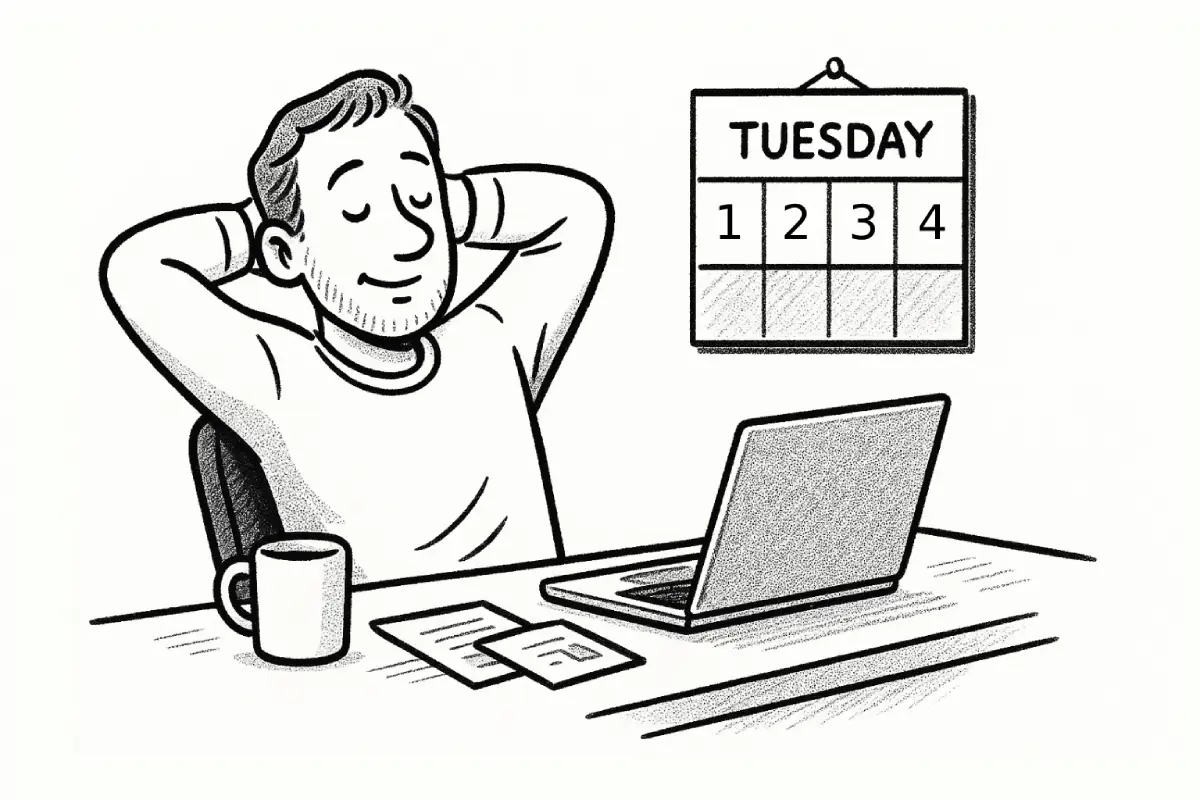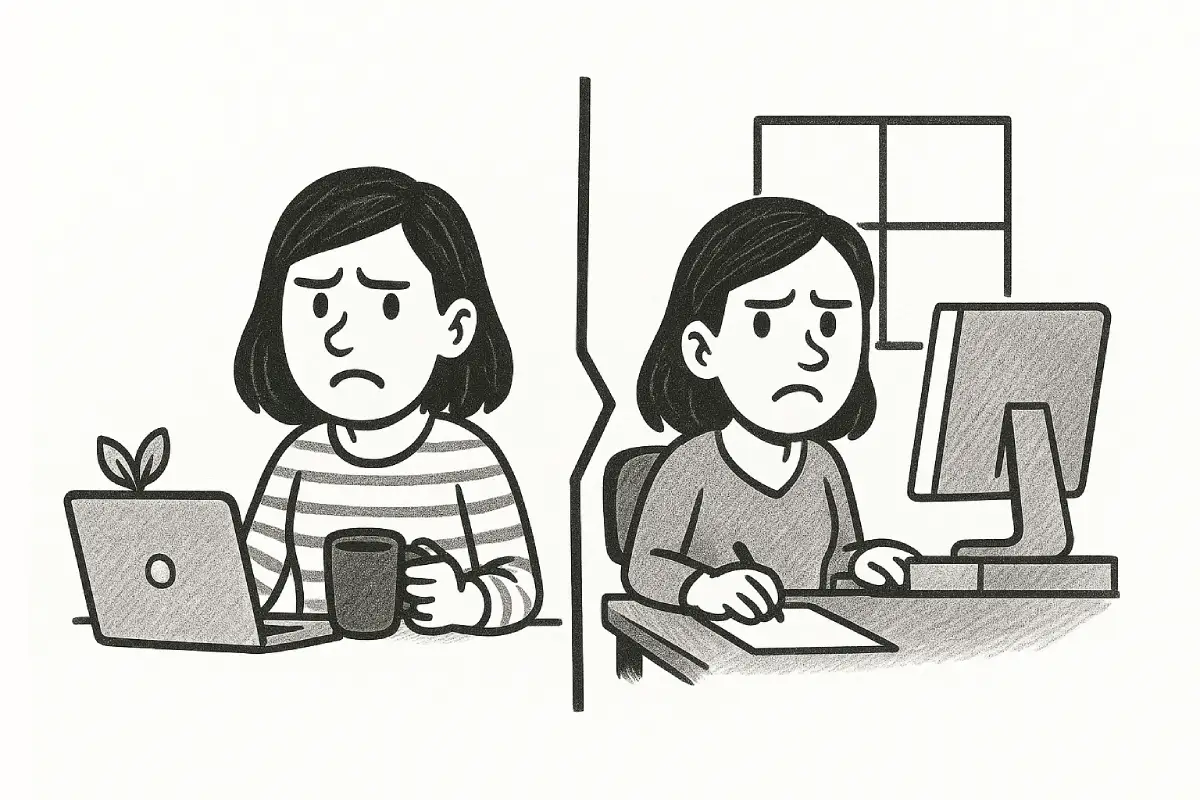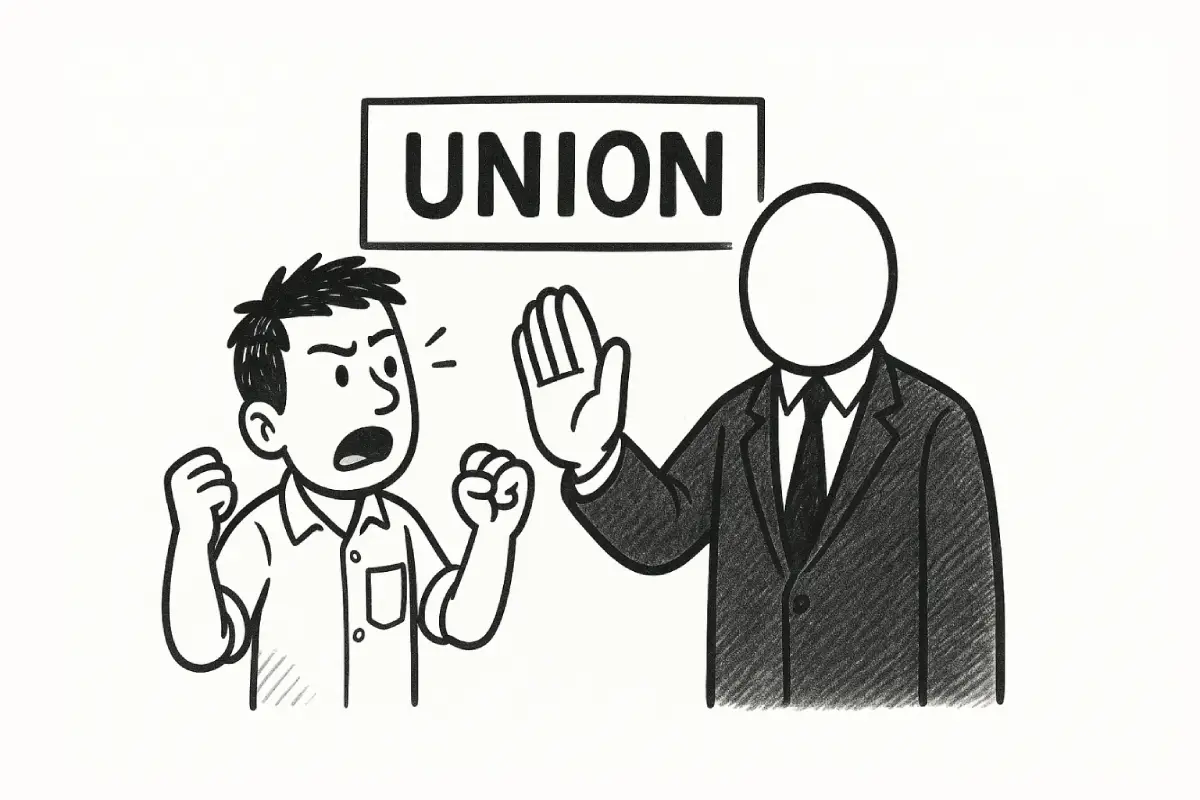There is a certain seductive allure to grand, simple solutions for complex, messy problems. It’s a very human impulse; we crave the elegance of a single key that unlocks every door, the silver bullet that slays every monster. In the sprawling, often-disenchanting landscape of modern work, the 4-day workweek has emerged as our latest, shiniest silver bullet. It is presented, with breathless enthusiasm, as the panacea for everything from endemic burnout to the Great Resignation, a revolutionary step forward in the inexorable march of human progress.
I have, from my particular vantage point as the founder of a platform that lives and breathes the nuances of the global workforce, watched this narrative unfold with a growing sense of intellectual unease. My skepticism is not born of a Luddite’s fear of change or a caricature of a Gilded Age factory owner, stopwatch in hand. Rather, it stems from a profound suspicion of dogma, especially dogma that arrives so neatly packaged and evangelized with the fervor of a religious revival. The discourse surrounding the 4-day week has become intellectually lazy—a binary cage match between utopian idealists and strawman traditionalists. The truth, as it so often does, resides not in the violent collision of these two poles, but in the vast, complicated, and inconveniently nuanced gray space between them.
And it is in that gray space that we must force ourselves to think.
The Siren Song of the Three-Day Weekend
Let us be intellectually honest, to begin with: the appeal of a perpetual three-day weekend is potent, almost primal. The proponents of the 4-day model paint a compelling, almost pastoral picture of a future where we are more productive, more rested, and more creatively fulfilled. Companies trialing the system—and there are many—release glowing reports, filled with impressive-looking charts and soaring testimonials. Productivity, they claim, doesn’t just hold steady; it often increases. Employee well-being skyrockets. Attrition plummets.
The data, on its face, seems incontrovertible. A landmark UK pilot program, for instance, produced results that can only be described as overwhelmingly positive. The final report from 4 Day Week Global reads like a manifesto for a new work-life covenant, with 71% of employees reporting lower levels of burnout and a staggering 92% of participating companies choosing to continue with the four-day week.
“The four-day week is not just a future-of-work concept; it’s a present-day reality that delivers proven, compelling and multi-level benefits for individuals, companies, and society.”
This is the central pillar of the argument, and to dismiss it outright would be foolish. The proposition—100% of the pay for 80% of the time, in exchange for a commitment to 100% of the output—is a powerful one. It reframes the relationship between labor and time, shifting the focus from presence to performance. It is, in theory, the very apotheosis of “working smarter, not harder.”
A Cure for Burnout, or a Symptom of Deeper Malaise?
But here, precisely at the peak of its utopian promise, the first crack in the façade appears. The narrative invariably frames the 4-day week as the solution to burnout. I would posit, however, that its very popularity is, in fact, a symptom of a much deeper, more systemic pathology in our professional lives. Are we truly so broken by five days of work that the only conceivable remedy is to amputate one?
It begs the question: what is it about the fifth day that pushes us over the edge?? Is it the day itself, or is it the meaningless tasks the bloated meetings, the performative presenteeism, and the soul-crushing administrative sludge that we allow to colonize our calendars? Reducing the workweek without fundamentally interrogating the nature of the work is akin to treating a gangrenous wound with a smaller bandage. The rot remains.
The conversation we should be having is not about the container—the four, five, or even three days we work—but about the substance contained within. A poorly designed job, devoid of autonomy, mastery, and purpose, will be just as corrosive to the human spirit in 32 hours as it is in 40. Perhaps even more so, as the compression of time amplifies the pressure to endure the meaningless with a smile. The promise of a long weekend becomes a coping mechanism, not a cure. It’s a bribe we pay ourselves to tolerate the intolerable.
The Unspoken Costs and the Perils of Dogma
The current discourse, in its rush to canonize the 4-day week, conveniently papers over the logistical and philosophical snags. The transition is presented as a simple matter of will and clever scheduling, a neat process of trimming the fat. This is a dangerously simplistic view that ignores the complex, interconnected ecosystem of a functioning organization.
The Compression Problem: Efficiency’s Double-Edged Sword
The core premise rests on the idea that the inefficiencies of a 5day week can be surgically excised to fit the work into a 4-day container. This assumes, of course, that the “fat” is easily identifiable and universally agreed upon. In reality, one person’s “pointless meeting” is another’s crucial touchpoint. The casualty of this ruthless compression is often the unquantifiable, yet vital, connective tissue of a company: the spontaneous brainstorming, the casual mentorship in a hallway, the slow percolation of ideas that occurs in the spaces between scheduled tasks.
Forcing five days of output into four is not a magic trick; it is an act of immense pressure. For some roles, particularly those that are project-based and autonomous, this can be a powerful focusing mechanism. For others – customer support, logistics, client-facing roles—it can be a recipe for relentless, high-intensity stress. A critical report by the BBC rightly points out the risk of work intensification, where employees are technically off the clock but mentally still tethered to their responsibilities. The promise of a day off becomes a ghost limb, aching with the phantom pains of unanswered emails and looming deadlines.
“The risk is that the four-day week becomes a Trojan horse for work intensification, where employees are forced to cram 40, 50, or even 60 hours of work into four frantic days.”
Are we creating a more humane way of working, or are we simply designing a more efficient burnout machine?
The Illusion of Equity and the Death of Serendipity
The one-size-fits-all application of a 4-day mandate is profoundly inequitable. It creates a new form of workplace caste system. The knowledge worker, whose output is abstract and often asynchronous, can adapt with relative ease. The frontline worker, whose value is tied to their presence, cannot. It also creates a chasm between junior and senior employees. A senior manager might relish the uninterrupted deep work, but a junior associate learns through observation, through osmosis, through the low-stakes interactions that the compressed week seeks to eliminate.
We risk creating organizations that are incredibly efficient at executing known tasks but have lost their capacity for innovation, mentorship, and cultural cohesion. By optimizing for productivity in the short term, we may be mortgaging our long-term adaptability and the professional growth of our people. This is a trade-off that is rarely, if ever, mentioned in the glossy brochures of the 4-day workweek evangelists. We must ask ourselves what is lost when we drain the temporal slack from our professional lives. It is often in those “unproductive” moments that the most productive connections are made.

Beyond the Dogma: A Plea for Intellectual Rigor
This brings me to my central thesis. The obsession with the 4-day workweek is a red herring. It is a dangerously seductive, intellectually convenient distraction from the far more difficult and important conversation we need to have about the fundamental nature of work itself.
The Tyranny of the Clock
Our entire conception of work is still shackled to the ghost of the industrial revolution—a paradigm of time-for-money, of physical presence as a proxy for value. The 4-day week, for all its progressive posturing, remains firmly rooted in this archaic model. It still worships at the altar of the clock, merely proposing a slightly different schedule of services.
The truly revolutionary question is not how many days we should work, but whether “days” or “hours” are the right unit of measurement at all. The future, one might venture, belongs not to the 4-day week, but to radical flexibility to asynchronous-first operations, to a ruthless focus on outcomes rather than hours logged. It belongs to a model built on trust and autonomy, where an employee is given a mission and the freedom to accomplish it in the way that best suits their life and workflow- whether that takes 20 hours one week or 45 the next. A rigid, top-down 4-day mandate is the antithesis of this vision; it is merely a prettier cage.
What Are We Actually Solving For?
As a founder, I am not interested in implementing the latest trend. I am interested in building a resilient, innovative, and humane organization. And to do that, one must begin not with a solution, but with a precise diagnosis of the problem.
Is the problem that my team is burned out? If so, why? Is it workload? Is it a lack of clarity? Is it toxic leadership?? A 4-day week might be a temporary balm, but it won’t fix a broken culture.
Is the problem that we are inefficient? If so, where are the bottlenecks? Are our processes bloated? Is our tech stack a hindrance? A shorter week might force a reckoning, but a direct assault on the inefficiencies themselves would be a more intellectually honest approach.
Is the problem that my employees crave more flexibility? If so, perhaps the solution isn’t a collective day off, but the individual freedom to work from anywhere, to set their own hours, to integrate their life and their work in a way that is meaningful to them. According to Gallup’s extensive global workplace report, engagement and well-being are tied far more closely to factors like having a manager who cares and opportunities for development than to a specific number of workdays.
The 4-day week might be an answer for some of these problems, for some companies, for some roles. But it is not the answer. To present it as such is a failure of imagination.
The real work is not in shuffling the calendar. The real work is in building a culture of trust, in defining success by outcomes, in relentlessly culling the bureaucratic weeds, and in creating jobs that are engaging and meaningful enough that your employees aren’t desperately counting down the hours to their escape.
Perhaps the ultimate, most uncomfortable question isn’t whether we should work four days or five. It’s whether we’ve created a version of work that holds any genuine meaning at all. And that, I’m afraid, is a far more terrifying problem to solve than simply giving everyone Friday off.
You might also like: The Science of Focus: How to Actually Get Work Done in 2026









